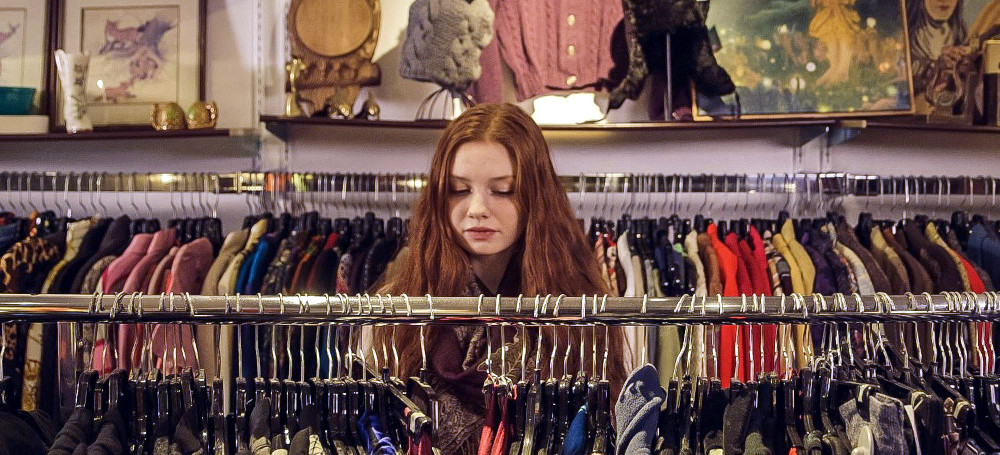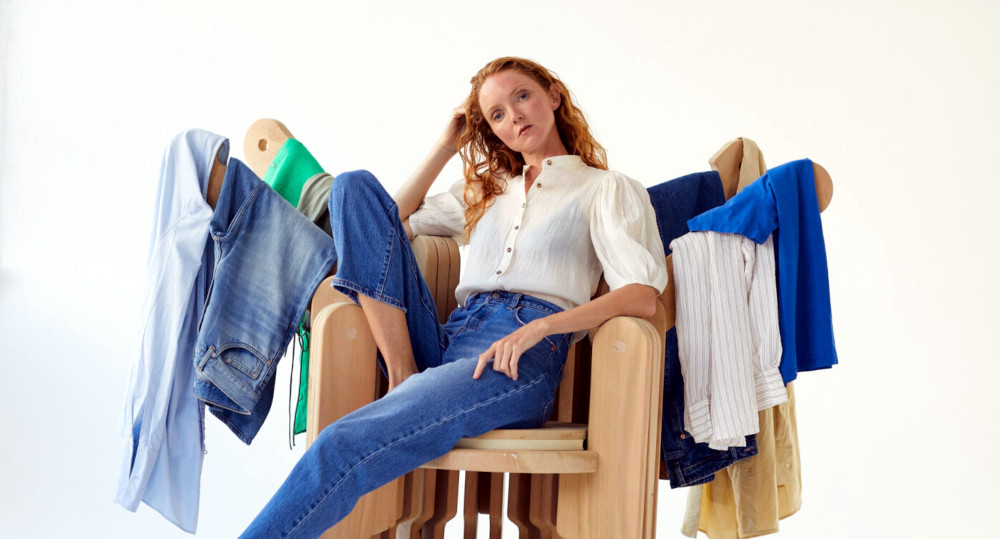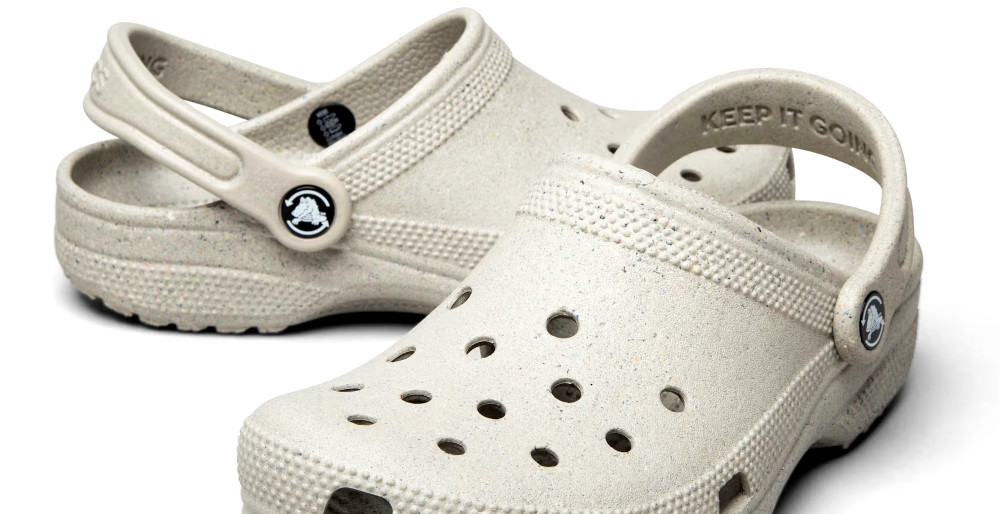Coalition launches petition to end US taxes on secondhand sales
 Image credit: Burst
Image credit: Burst
American Circular Textiles (ACT) —
a coalition of fashion and textile organizations aligned on circularity and
sustainable fashion public policy in the US — in partnership with several of
its member companies, has launched a nationwide
campaign
and
petition
to eliminate double taxation on secondhand goods, repairs and alterations. The
petition aims to raise awareness about the unfair burden placed on consumers who
choose sustainable and affordable shopping options.
Currently, many states impose sales tax on secondhand items — including
clothing, shoes and accessories — subjecting consumers to double taxation. ACT
asserts this policy not only discourages sustainable shopping practices but also
hinders the growth of the secondhand market, repair options and a circular
fashion economy. Upwards of 85 percent of used clothing goes into landfills or
incinerators — much of which could instead be resold.
“Consumers’ pocketbooks are stretched thin. Monthly spending on apparel and
footwear has risen a whopping 72 percent since January 2020, and more shoppers
are turning to secondhand first,” says ACT CEO and founder Rachel
Kibbe. “Ending double
taxation is not only the fair and just thing to do — it will also spur economic
growth and strengthen the trend towards shopping for well-made clothing that can
be reused and/or repaired, rather than tossed into the ever-growing piles of
apparel waste.”
ACT members and affiliates representing a variety of facets of the circular
fashion ecosystem — including America's Best
Cleaners, Arrive
Recommerce and Project
Repat; tech innovators
Sortile and unspun; and
online fashion resellers Fashionphile,
ThredUp and Vestiaire
Collective — are participating in the
campaign.
“As a leading company of pre-loved luxury fashion, it is crucial for us to
support any initiative aiming to remove barriers for circular businesses,” says
Samina Virk, US CEO of Vestiaire
Collective. “Fair tax policies enhance the viability of secondhand markets,
benefiting both the environment and the economy. Moreover, this campaign aligns
with our advocacy efforts in France and Europe for new VAT policies to support
circular economic models.”
The
petition
outlines the detrimental effects of double taxation on secondhand goods and
calls on lawmakers to take action. By signing the petition, individuals can help
create a groundswell of support for ending double taxation on secondhand items
to help support more conscientious shopping habits.
"Eliminating the double taxation on secondhand goods is smart policy,” says
Alon Rotem, Chief Legal Officer at
ThredUp. “It will not only help fuel the circular economy — but it's also a
commonsense approach to further empower consumers to make smart, sustainable
choices. It's a clear win for the future of fashion and taxpayers who want to do
the right thing."
‘Rewearing is Caring’ campaign urges UK consumers to rethink their laundry habits
 Lily Cole and the 'Rewear Chair' | Image credit: Ecover
Lily Cole and the 'Rewear Chair' | Image credit: Ecover
Meanwhile, sustainable cleaning product giant Ecover
has partnered with model, writer and sustainability advocate Lily
Cole on its new “Rewearing Is
Caring” campaign — designed to encourage Brits to rethink their laundry
habits by rewearing outfits and washing clothes less to help reduce the
environmental impact of over-washing.
“Embracing sustainable fashion means rethinking not only how we produce clothing
and what we buy but also how we care for it,” Cole says. “By washing clothes
less frequently, we reduce water waste and extend the life of our garments —
which is a simple yet powerful step toward a more conscious lifestyle.
Sometimes, the best wash is no wash.”
The campaign is underpinned by findings from Ecover’s inaugural Home
ECOnomics
Report,
in partnership with Falmouth University, which explores the environmental
impacts of the laundry habits – including water and energy
consumption,
chemical runoff from detergents, and microplastic shedding from washing
machines.
The report reveals how deeply cultural and social expectations have shaped
Britain’s laundry habits. Misunderstanding fueled by misguided household
traditions and beliefs have led nearly one in five adults (18 percent) to
mistakenly believe that washing less often doesn’t impact the planet — which
brands including Levi Strauss have worked hard to
dispel;
and one in ten (11 percent) feel pressured by societal standards to do laundry
more frequently, despite being aware of the carbon footprint — which echoes key
findings of a recent Chalmers University report that examined the driving
forces
behind the laundering behaviors of Swedish consumers.
Ecover’s report also found that nearly a quarter (24 percent) of adults lack
confidence in following clothing care instructions and over a third (34 percent)
do not follow them — leading to the unintended impacts of over-washing including
water, energy and textile waste.
Positively, in the last decade, one in five (21 percent) Brits say they have
adopted more sustainable laundry habits including increasing the number of wears
between washes — with a further six in ten stating they are willing to change
their laundry habits to reduce their carbon footprint.
Rewearing Is Caring builds on Ecover’s ongoing “Laundry Against
Landfill” campaign and
is the latest in efforts to celebrate and inspire more conscious laundry habits
including washing at lower
temperatures,
choosing more thoughtful yet effective cleaning options, and celebrating
‘laundry limbo’ and washing less — even embracing ‘airing’ as an interim step
before washing worn outfits, highlighting the chair as an overlooked tool:
Doubling down on this message, Ecover has also launched a prototype "Rewear
Chair" — designed to
optimally air clothes and reduce unnecessary over-washing — which will be
exhibited at Dutch Design Week next month. Ecover and Cole are also hosting
“The Capsule
Collection”
— a pop-up store and panel discussion hosted in partnership with Charity
Super.Mkt in London on 26th September,
where consumers can shop pre-loved styles in-store and learn how to wash and
shop less wastefully via a panel of sustainability and eco-conscious fashion
experts.
“We want to encourage the public to embrace sustainable laundry practices and
demonstrate the impact of small, thoughtful choices,” an Ecover spokesperson
said in a
statement.
Crocs’ ‘Keep It Going’ Classic Clog made with 25% recycled Crocs
 Image credit: Crocs
Image credit: Crocs
Also, casual footwear giant Crocs recently unveiled
its latest step toward its circularity goals with the limited-edition
Keep It Going Classic
Clog. Each shoe
is made from 25 percent post-consumer recycled content, created from shoes
collected through the brand’s “Old Crocs. New
Life” takeback program.
"I want to thank every Crocs fan who brought in or sent back their old Crocs
shoes so we could explore ways to give them a new life. This type of circularity
program only works when consumers engage and are willing to do some good in the
world together,” said Crocs Chief Sustainability Officer Deanna
Bratter. “Fueled by our fans, we
are making strides in our ambition to create more circular systems of production
and consumption — and ultimately, delivering against our commitment to bring
Comfort for the Planet.”
Since the launch of the ‘Old Crocs. New
Life’ pilot last October and
its nationwide expansion in May, the brand has collected Crocs shoes at retail
locations across the country and through an online mail-back kit. The brand’s
priority is to keep shoes on feet for as long as possible, so gently used Crocs
that can still be worn are donated to the nonprofit
Soles4Souls. Well-loved Crocs that cannot be kept on
feet are processed, sorted and deconstructed into post-consumer recycled
materials ready for their next use — in this case, as part of the Keep It Going
Classic Clog.
Available now online and in select Crocs retail locations in the US, the Keep It
Going Classic Clog is a limited-edition product at the same accessible price
point as the Classic Clog.
The launch of the Keep It Going Classic Clog follows Crocs’ recent milestone of
achieving 25 percent bio-circular
content
(which includes plant-based byproducts that would otherwise end up as waste,
such as cooking oil from the food industry) across its entire Croslite
material portfolio — which accounts for more than 80 percent of the brand’s
total footwear materials use — halfway to its goal of reaching 50 percent
bio-circular content within its Croslite material by 2030.
Get the latest insights, trends, and innovations to help position yourself at the forefront of sustainable business leadership—delivered straight to your inbox.
Sustainable Brands Staff
Published Sep 23, 2024 8am EDT / 5am PDT / 1pm BST / 2pm CEST